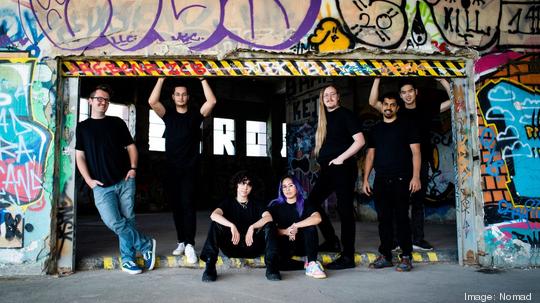
Nine-figure hacks have been almost as common as nine-figure funding rounds in the crypto world this year thanks to glaring vulnerabilities in “bridges” that connect one blockchain to another to transfer massive sums of digital currency.
Earlier this year over $600 million in crypto was hacked from a bridge developed to transfer money out of the popular crypto game Axie Infinity, and the company had to raise another $100 million round from a16z just to pay back some of the money stolen from its users.
“We’re really in the wildcatting era of crypto,” Pranay Mohan, CEO and co-founder of Nomad, a startup that is tackling the problem.
Nomad aims to develop a more secure bridge with a loftier ambition of creating a core protocol of the Web3 ecosystem akin to TCP, a protocol that facilitates emails and a range of other processes on the modern internet so reliable most web users don’t know or care of its existence.
Web3 is an aspirational version of the internet that is decentralized away from the control of major tech companies with a core emphasis on digital ownership of goods and financial transactions made through the blockchain.
“Whereas Web 2.0 was the free exchange of information, Web3 is all about the free exchange of value,” Mohan said.
Nomad recently raised $22.4 million in a Series A round led by Polychain Capital, putting the company’s pre-money valuation at $60 million, according to Pitchbook. Breyer Capital also invested.
“I used to work as a chemical engineer at oil refineries where there are safety valves and lots of codes about max pressure, etc,” Mohan said. “But all this safety regulation only came about after a number of major explosions at refineries. In crypto we are in the oil rush phase without all the safety valves.”
Essentially Nomad is trying to make messages transferred between blockchains denoting information, such as smart contracts and token transfer requests, more secure by implementing a system that allows for “watchers” to contest messages they believe are fraudulent. Any one watcher can block a transaction for a time, unlike other bridges which use a team of validators that can only block transactions through a majority decision.
Ronin, the bridge powering Axie Infinity that was hacked last month had nine validators, but when five of them were compromised by the hacker the entire bridge was exposed.
Nomad, which is nominally Bay Area-based with an address in Novato, is free to use by developers that want to make products that operate across different blockchains. Mohan hopes the protocol will become ubiquitous enough in the crypto world that his company can eventually earn money as consultants and provide other services for those wishing to implement it.
“To be completely honest, I can’t tell you exactly how things will shake out and how we will extract value but being a critical part of this future ecosystem will be enough — I’m not trying to be a greedy shitlord,” he said. “We still have to worry about the plumbing and if we can’t build it without losing $600 million, how can we ever expect normal people to use it.”





